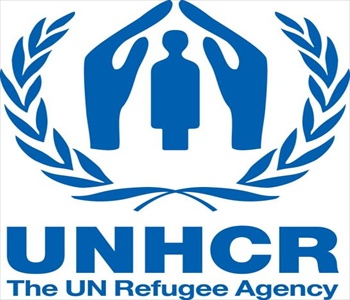EU-funded water project and police station inaugurated in Damak

On Tuesday, the Dumse drinking water project and the Beldangi police station, both funded by the European Union, were inaugurated in the Damak Municipality (Jhapa district, eastern Nepal). Both projects are part of the overall EU funding of € 2,950,000 (404,863,893 Nepalese rupees) to UNHCR for the period 2011 to 2014. High level government and security officials, civil society, local communities, refugees, media, and organizations working for the refugees attended the inauguration event.
“These EU-funded projects are so important because they aim to support vulnerable communities within the refugees from Bhutan in their basic rights and needs. The EU is working in a number of projects to improve the living conditions of refugees, and we will continue doing so in Nepal,” stated Ambassador H.E. Mrs. Rensje Teerink.
The Dumse water project, inaugurated jointly by the Ambassador of the European Union in Nepal H.E. Mrs. Rensje Teerink and UNHCR Head of Sub-Office in Damak, Mr. Shinji Kubo, is expected to benefit almost 20,000 people, both from the refugee and neighboring communities. The water is sourced from the nearby Mawa river to a 100 cubic meters capacity reservoir, where it is treated and then supplied through the community water taps in Beldangi camp and nearby villages. The local communities are happy with this project as they will no longer have to travel for nearly an hour to fetch drinking water from the river.
The project received great support from the Dumse drinking water and sanitation users committee (a community based organization), Humse Dumse community forest users group, and the local communities. It was constructed by UNHCR through its partner agency Lutheran World Federation. The Beldangi police station was jointly inaugurated by Mr.
Shankar Prasad Adhikari, Regional Administrator of the eastern region, Ambassador H.E. Mrs. Rensje Teerink and UNHCR Head of Sub-Office, Mr. Shinji Kubo. This project is part of UNHCR’s continued support for projects that would also benefit the local communities in the eastern region. Refugees and neighboring communities in the vicinity of the police station will now have easy access to police services, as the next police station is located in Damak, which is some eight kilometers away.
“We are very grateful to the Government and people of Nepal for hosting the refugees from Bhutan for over two decades and as our appreciation to this generosity, we would continue to support some projects that would benefit the local communities,” said Mr. Shinji Kubo, UNHCR Head of Sub-Office in Damak.
Constructed by UNHCR through LWF within six months’ time, the Nepal Police extended its full cooperation to this project. The land was generously donated by the local community.
The premises have been well design under Nepal Police standards with separate barracks for female and male police officers, a spacious waiting area, comfortable offices, canteen and toilets. The facility is well equipped with furniture and computers donated by UNHCR, including a vehicle.
The EU has provided continuous support to UNHCR’s activities in Nepal since the beginning of the programme for the refugees from Bhutan. The 2011-14 contribution is being used for meeting the ongoing protection and material needs of the refugees living in camps in eastern Nepal, including health and nutrition, education, legal assistance, sanitation, shelter and water.
The European Union is one of UNHCR’s most important donors. The EU is a major provider of humanitarian and development aid, and a key player in the international effort to develop policies to improve aid effectiveness and coordination at the global level, added the statement.
A major resettlement programme is underway for the refugees from Bhutan. So far, more than 86,000 refugees from Bhutan have left their camps in Nepal to begin a new life in third countries.